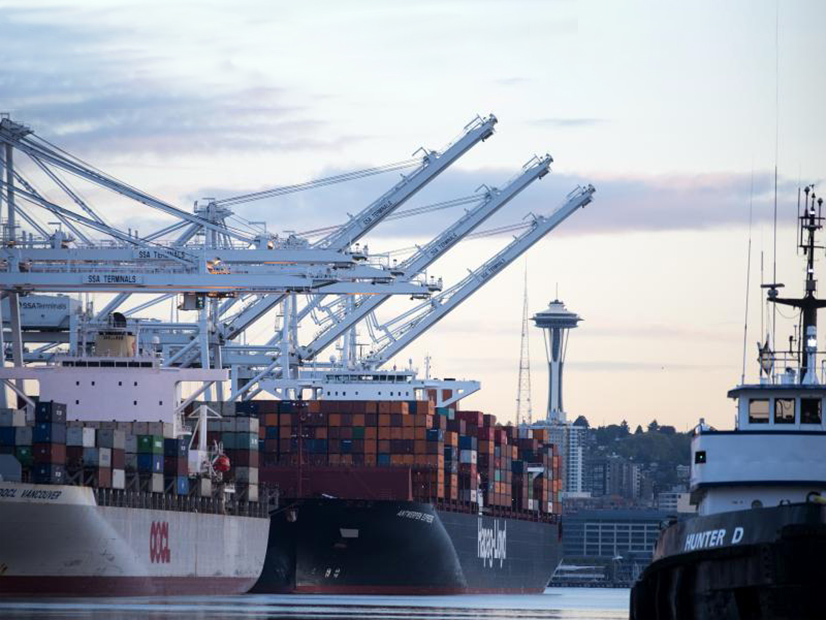
The Port of Seattle is studying if and how it should get into the business of producing and distributing hydrogen.
Realistically, that move — if made — is a few years down the road.
The port wants to trim its carbon footprint and be a player in the fledgling hydrogen supply economy, Ryan Calkins, president of the port’s commission, told NetZero Insider. There is some urgency for the port getting into the field as medium- and heavy-duty trucks, plus ships are likely to switch to hydrogen fuels. “We really need to build this soon,” Calkins said.
For example, a handful of hydrogen-fueled ships, mostly ferries, are now in use in northern Europe and Japan. Calkins believes the shipping industry, which accounts for 2.2% of worldwide greenhouse gas emissions, could gradually expand more into using hydrogen as a fuel, which would mean those vessels will use ports where hydrogen is stored.
The Port of Seattle and some partners are conducting two studies covering whether the port should get into the hydrogen business and how, where to locate facilities, costs, potential customers and storage. The federal government has provided $2.12 million to the port to tackle the studies.
“This is to get a better understanding of what this will look like,” Calkins said.
The port is one year into a two-year study on the big picture of getting into the hydrogen fuel business. Its partners on the study are Seattle City Light, Pacific Northwest National Laboratory and Sandia National Laboratory.
A second two-year study by the port and Seattle City Light is expected to start soon and will look at hydrogen storage issues, such as types and sizes of tanks, and examine safety risks, such as the potential for explosions.
Washington officials are making a big push to have the U.S. Department of Energy select the state as one of four to eight national “hydrogen hubs” to be funded by $8 billion in appropriations from the Infrastructure Investment and Jobs Act. State lawmakers in March passed a bill to create a new Office of Renewable fuels to support the develop of hydrogen and other renewable fuels. (See Green Hydrogen Bill Passes Wash. Legislature.)
At a carbon policy forum held in Seattle last month, state Sen. Reuven Carlyle said, “This is a ruthless competition nationwide. It’ll be political malpractice not to leave everything on the field.”
Hydrogen efforts are already taking shape in other parts of the state. In Central Washington, Douglas County Public Utility District is constructing what will be the state’s first green hydrogen production facility near its Wells Dam on the Columbia River. The $25 million project is expected to go online in late 2022 or early 2023.
Last week, Australia-based Fortescue Future Industries said it would examine converting a disused Centralia, Wash., coal mine into a green hydrogen production facility. Centralia is located about 85 miles south of Seattle. (See Australian Company Eyes Closed Wash. Coal Mine as Green Hydrogen Site.)